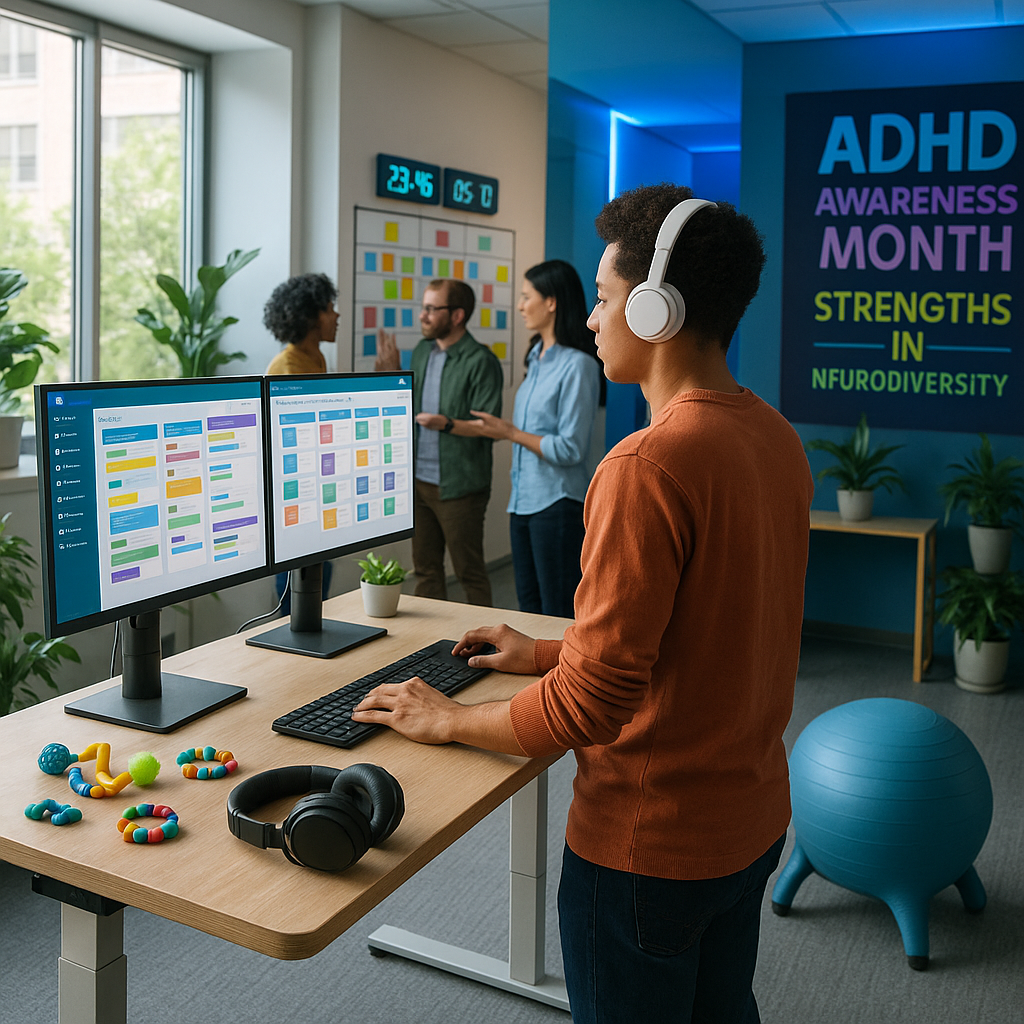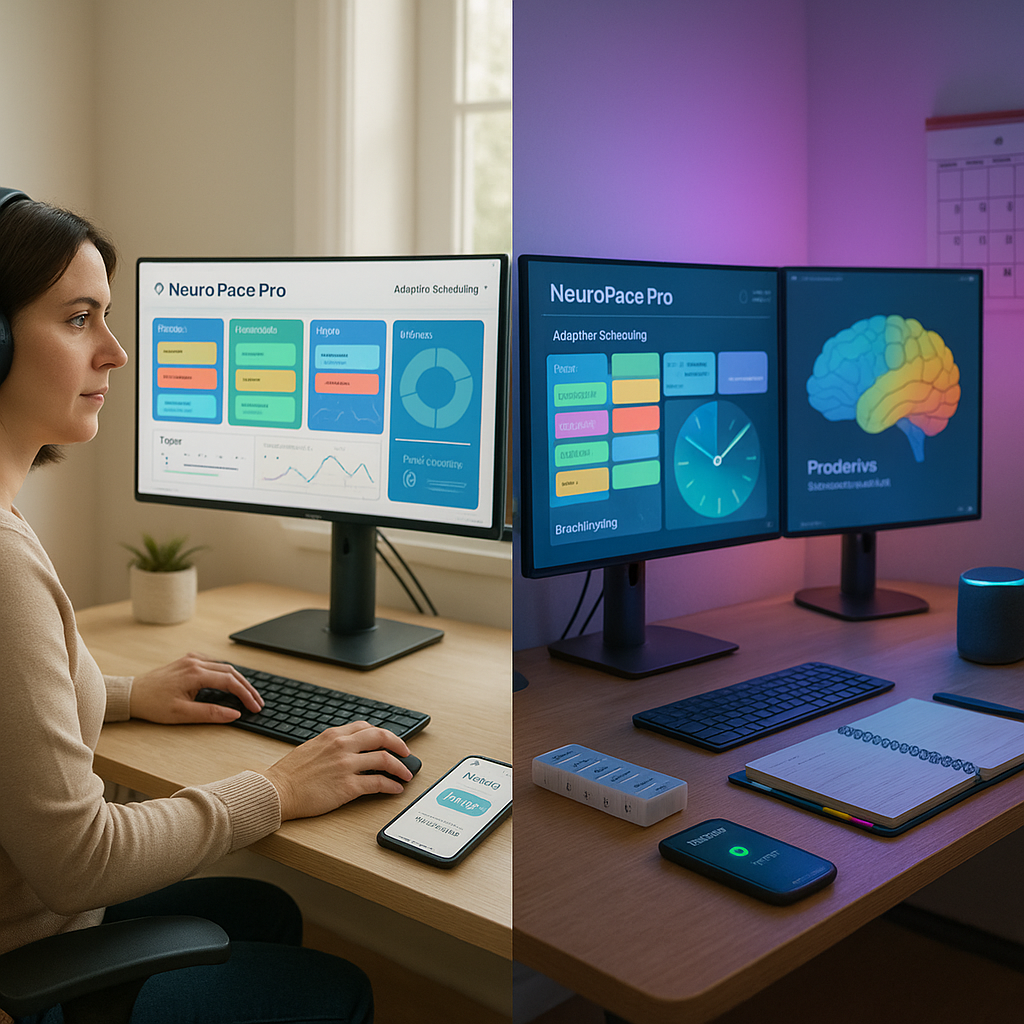Key Takeaways
- October is ADHD Awareness Month. The 18 October 2025 edition highlights the diversity within the ADHD community and recent connections between ADHD and childhood hearing loss.
- Top story: ADHD Awareness Month underscores the broad spectrum of ADHD traits and experiences.
- A recent study finds an association between childhood hearing loss, allergies, and increased ADHD risk.
- Physical activity has been shown to reduce hyperactivity in adolescents with ADHD.
- ADHD remains underdiagnosed among minority and underserved populations.
- New research emphasizes the importance of recognizing co-occurring sensory and health issues in ADHD.
Introduction
On 18 October 2025, ADHD Awareness Month brings attention to the range of experiences within the ADHD community. Recent research also explores the connection between childhood hearing loss and ADHD. This Press Review examines these developments and the broader landscape of ADHD news and research informing care, understanding, and advocacy.
Top Story. ADHD Awareness Month Highlights Workplace Inclusion
Global Campaign Success
The 2025 ADHD Awareness Month campaign, “Strengths in Neurodiversity,” has engaged over 2 million people through social media and community events. Major corporations such as Microsoft, Google, and Adobe have responded by establishing neurodiversity hiring programs.
Workplace inclusion is at the center of this year’s campaign. Policy discussions have followed, with the Department of Labor issuing new guidelines for ADHD accommodations in professional environments. These recommendations emphasize flexible work structures and the use of assistive technology.
Corporate participation has increased since last year, with 150 Fortune 500 companies now offering tailored ADHD support initiatives. The Society for Human Resource Management has reported a 40% rise in requests for ADHD accommodation training.
Also Today. Research Breakthroughs
Physical Health Connection Study
A recent study published in the Journal of Neuroscience links regular physical activity to improved ADHD symptom management. Researchers monitored 2,500 adults with ADHD over a three-year period, finding those who practiced moderate exercise demonstrated 30% higher executive function scores.
The study also identified significant connections between hearing health, seasonal allergies, and the intensity of ADHD symptoms. Dr. Sarah Chen, the lead researcher, stated that these results support an integrated approach to managing ADHD.
Digital Tools Assessment
The National Institute of Mental Health has conducted its first comprehensive review of ADHD management applications. The study outlined five features that make digital tools effective for neurodivergent users.
Applications with visual scheduling, automated reminders, and reward systems showed the highest levels of user engagement. Researchers note that these findings are influencing the development of the next generation of ADHD support technologies.
Also Today. Diversity and Inclusion
Cultural Competency Framework
The International ADHD Federation has introduced new guidelines for providing culturally competent ADHD care. This framework aims to address disparities in diagnosis and treatment across different groups.
Healthcare providers in 12 countries have committed to adopting these guidelines by January 2026. Early adopters have reported a 25% increase in accurate diagnosis and treatment among previously underserved populations.
Multilingual Resources Launch
A coalition of ADHD organizations has released educational materials in 15 languages to extend outreach to communities with historically limited ADHD support.
The initiative is receiving positive responses, particularly within immigrant families and rural areas. Materials include culturally adapted screening instruments and family support guides.
What to Watch. Key Dates and Events
- International ADHD Conference in Chicago, scheduled for 15 to 17 November 2025
- Release of updated WHO ADHD management guidelines on 1 December 2025
- National Workplace Neurodiversity Summit, Washington DC, on 10 January 2026
- Publication of the Annual ADHD Global Impact Report on 1 February 2026
Conclusion
This month’s ADHD news and research highlight the growing understanding of ADHD, its varied effects across populations, and the role of culturally informed support. Advances in workplace inclusion and holistic management point to broader recognition of neurodivergent strengths. What to watch: upcoming events include the International ADHD Conference in November, new WHO guidelines in December, and significant workplace neurodiversity reports in early 2026.





Leave a Reply